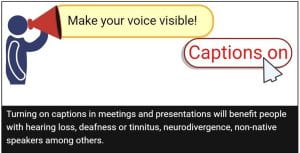This blog is co-authored by Disability Equity Lead Dr Elise Crayton and Rikesh Rajani.
As part of Disability History Month this year, I thought it would be meaningful and interesting to shine a spotlight on a newer long-term condition: Long COVID. I am sure, given the media storm that has surround Covid-19 for the past few years we have all heard the term Long COVID but really do any of us know what Long COVID is and what Long COVID can look like and the challenges it presents for those living with it.

long Covid syndrome and coronavirus pandemic symptoms that persist as a burden concept or being tied trapped as a hauler of a virus infection with 3D illustration elements.
What is Long COVID?
Whilst most people who contract COVID-19 recovery fully within a few days or up to 12 weeks later, some do not with symptoms that linger and last much longer. For these individuals, we would consider them to have Long COVID, sometimes described as post COVID-19 syndrome. However, as this condition is new, we are still working to understand it and there are lots of different strands of reach taking place to do this.
If you are looking for more information, the best first resource to access will be the NHS website.
What impact does long COVID have on the UCL community?
There will be many students and staff across campus who are living with Long COVID, whether this is diagnosed or suspected. The symptom profiles from person to person also greatly vary. The most common symptoms include (according to the NHS):
- Fatigue
- Shortness of breath
- Loss of smell
- Muscle aches
However, many people report experiencing other symptoms like: brain fog (issues with memory and concentration), pain or tightening in the chest, heart palpitations, dizziness, insomnia, depression, and anxiety among others. Many people also find that their symptoms get much worse following even small amounts of mental, physical or emotional activity (known as post exertional malaise/post exertional symptom exacerbation).
Therefore, those living with the condition may find usual daily activities on campus challenging such as walking across campus or concentrating in meetings or lectures. Some with Long COVID may also be more susceptible to infection, or feel less confident about mixing in large groups as we did before COVID-19 struck, making many of the vibrant and exciting activities that take place on campus and within academia difficult to engage with.
What can we be doing to support those living with this condition?
There are always positive and easily implementable things we can think of doing to support our colleagues and students with Long COVID. Often these types of changes will not only benefit those with Long COVID but many if not all of the community here at UCL. I do think we need more data and evidence to more robustly understand the types of strategies or interventions we could recommend to help, but I do have a few suggestions that I will present below that I think could have small, but meaningful impact on those with this condition.
-
- Utilise the Reasonable Adjustments/Summary of Reasonable Adjustments (SoRA) schemes within UCL.
a) Line managers and supervisors or personal tutors can support their students and staff to identify some of the person centered approaches to supporting them to study and work successfully on campus via these schemes.
-
- Ask the question: Do all our meetings/social gatherings need to be in person?
a) There are of course many benefits to in person meetings and social gatherings. However, there may be some instances where meetings or social gatherings could take place in a hybrid format (to allow those who find accessing campus harder to stay at home) or even in a remote format, utilising MS Teams or Zoom.
b) To help people with Long COVID avoid reinfection, you could also consider holding social gatherings in a COVID safe manner, such as by having them outside or asking people to do a COVID test beforehand. This can also be helpful for other people living with conditions that increase their clinical vulnerability.
-
- Where appropriate, record meetings, lectures and other presentations or use live captioning
a) Whether a meeting is taking place in person or online, having a meeting recording, captioning or a transcript of a meeting could be vitally important for those who are struggling with concentration or having memory issues. This can also be useful for others though, perhaps those who experience hearing loss and deafness, those with neurodivergence or any one of us who is working in a busy and chaotic environment.
-
- Create and encourage a supportive environment within your team or course.
a) It sounds obvious, but if staff and students feel that they can easily approach others to ask for help if they are experiencing challenges from Long COVID, then it means they are more likely to get the help they need. We may also decrease the chances of students exiting their studies and staff leaving their roles.
b) You can take small, simple steps to do this like:
i) having fortnightly coffee mornings (remote or in person).
ii) having clear, structured processes describing who to contact if you need more support
iii) having clear, structured processes describing who to contact if you need more support
iv) editing your email signature to request that people let you know if they have any needs or adjustments (as it indicates you are open to having these discussions.
v) requesting informal feedback following meetings, lectures or other presentations to sense check whether the format is inclusive
Overall, there are lots of small, simple things we can be doing to ensure that UCL continues to grow and develop into an equitable and inclusive environment. This will have such an important, positive impact on those living with conditions like Long COVID, but in reality will greatly benefit all of us.

 Close
Close



